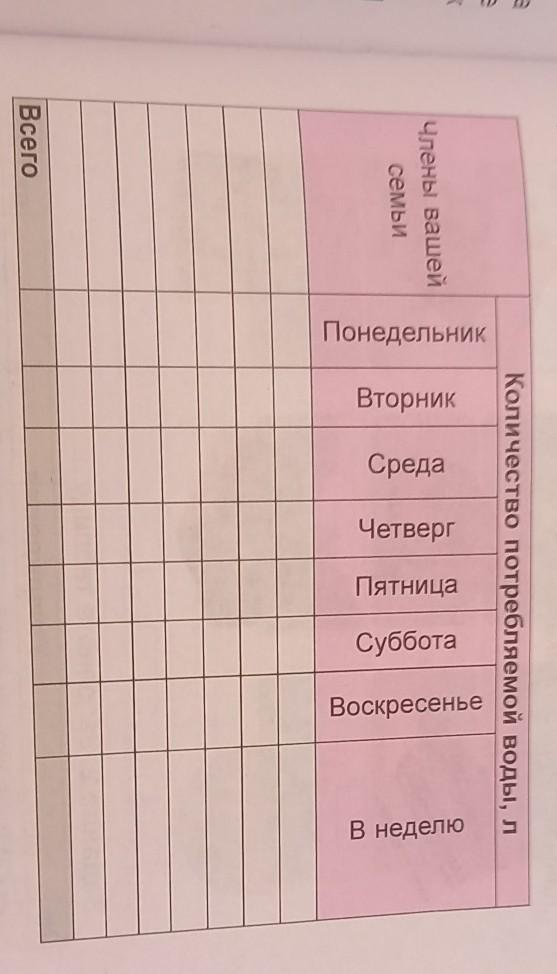Предмет: Окружающий мир,
автор: Аноним
Задание 3. Помогите членам вашей семьи рассчитать их ежедневное и еженедельное потребление воды, вписав соответствующие цифры в пустые ячейки.
УМНЫЕ ЧЕЛОВЕКИ ОТВЕЧАЙТЕ ПЖ А НУБЫ НЕ ПИШИТЕ КАКОЙТО ДУРАТСКИЙ ОТВЕТ
Приложения:

Ответы
Автор ответа:
4
Ответ:
Расчет ежедневного и еженедельного потребления воды зависит от нескольких факторов, таких как возраст, физическая активность, климатические условия и здоровье. Обычно рекомендуется выпивать от 1,5 до 2 литров воды в день для взрослых. Для детей этот объем может отличаться, поэтому лучше проконсультироваться с врачом.
Чтобы рассчитать еженедельное потребление воды, нужно умножить ежедневный объем на 7.
Например, если вы выпиваете 1,5 литра воды в день, то ваше еженедельное потребление составит: 1,5 л * 7 дней = 10,5 литров.
Таким образом, вы можете рассчитать ежедневное и еженедельное потребление воды для каждого члена семьи индивидуально, учитывая их возраст, физическую активность и другие факторы.
Похожие вопросы
Предмет: Русский язык,
автор: sulejmanovadiana67
Предмет: Математика,
автор: kuzmicdarina54
Предмет: Английский язык,
автор: gymnazia13kmm
Предмет: Другие предметы,
автор: beloglazovavika3
Предмет: Английский язык,
автор: grakon55